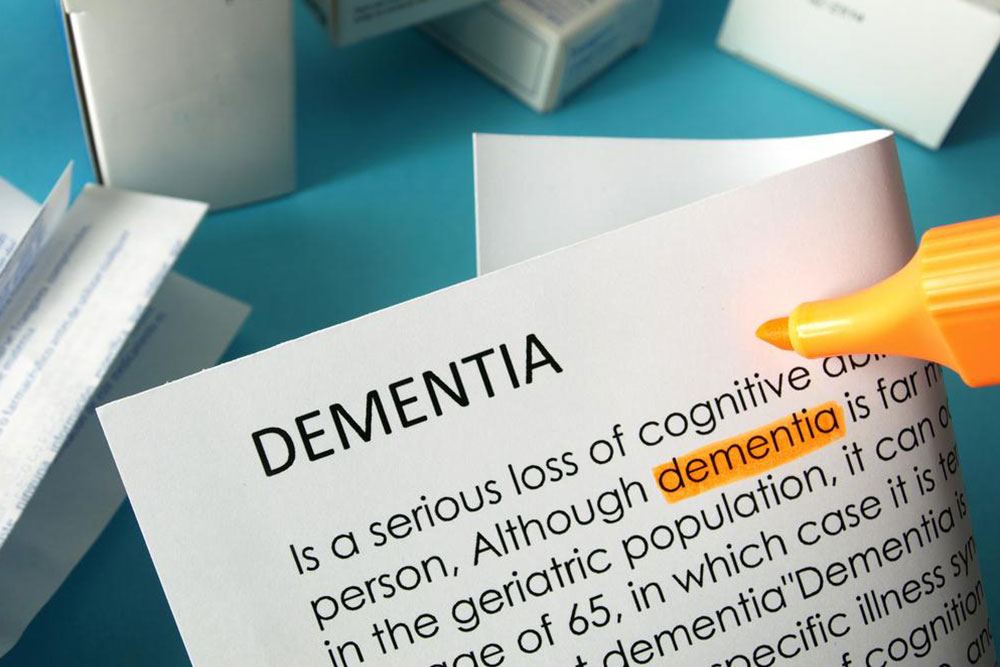Comprehensive Guide to Dementia: Understanding Its Progression and Effective Care Strategies
This comprehensive guide explores the stages of dementia, from initial signs to severe decline, emphasizing effective care strategies. It highlights the importance of early detection, managing symptoms, and providing comprehensive support to improve quality of life for patients and caregivers while discussing the latest insights into disease progression and care improvement methods.

Comprehensive Guide to Dementia: Understanding Its Progression and Effective Care Strategies
Dementia is a complex neurological disorder that profoundly impacts an individual's memory, thinking, reasoning, and daily functioning. It is characterized by a gradual decline in cognitive abilities caused by damage to, or disease affecting, critical regions of the brain responsible for learning, memory retention, language, and decision-making processes. As a growing health concern worldwide, understanding dementia's progression and learning effective management and care techniques are essential for patients, caregivers, and healthcare providers.
It is important to recognize that dementia is not a singular disease but rather an umbrella term that encompasses various symptoms resulting from different underlying pathologies. These symptoms typically manifest as a decline in cognitive functions severe enough to interfere with daily life and independence. The most common types include Alzheimer’s disease, vascular dementia, Lewy body dementia, and frontotemporal dementia, among others. Each type has unique features and progression patterns, but all share common stages and care challenges.
Understanding the Stages of Dementia
The progression of dementia is typically categorized into multiple stages, each reflecting the severity and impact of cognitive decline. These stages help caregivers and healthcare professionals tailor treatment and support strategies to meet the evolving needs of individuals affected by the condition.
No Noticeable Symptoms
At this earliest stage, individuals usually show no outward signs of cognitive impairment. Medical examinations might reveal subtle brain changes, but these are generally undetectable through standard cognitive tests. Often, this stage lasts for years, making early detection challenging but critical for future management.
Very Mild Symptoms
Individuals may experience minor behavioral shifts like occasional forgetfulness or misplacing objects but still function largely independently. These subtle changes are often dismissed or considered part of normal aging.
Mild Cognitive Decline
As symptoms become more noticeable, people may struggle with recalling recent conversations or events, finding it harder to plan or organize tasks. Anxiety and frustration may surface, especially in social or unfamiliar environments.
Moderate Decline
Challenges extend to more complex tasks such as managing finances, remembering personal details, or following instructions. Personal hygiene routines and daily activities might require assistance, and communication difficulties become more evident.
Noticeable Decline
Others observe significant memory lapses, such as forgetting important dates or personal history. Patients may have difficulty recognizing loved ones or choosing appropriate clothing, highlighting the need for increased supervision.
Severe Decline
Cognitive abilities deteriorate substantially. Patients often exhibit personality changes, require help with daily routines, and experience disruptions in eating and sleep patterns. At this stage, full-time care and supervision are typically necessary.
Very Severe Decline
The final stage involves profound loss of cognitive and physical functions. The individual becomes non-communicative, loses mobility, and depends entirely on caregivers for basic needs, often spending most time in bed and at risk for other health complications.
Effective Strategies for Managing Dementia
Although there is currently no cure for dementia, various strategies can effectively manage its symptoms, improve quality of life, and provide comfort to both patients and caregivers:
Physical Health Maintenance
Regular physical activity, proper nutrition, and sufficient sleep are vital in supporting brain health and overall well-being. Exercise can help reduce agitation and improve mood, while a balanced diet rich in antioxidants may slow cognitive decline.
Professional Healthcare Consultation
Connecting with healthcare professionals specialized in neurology, geriatrics, or psychiatry ensures accurate diagnosis, appropriate treatment plans, and ongoing monitoring of disease progression.
Medication Adherence
Many medications can help manage symptoms such as memory loss, agitation, or depression. Strict adherence to prescribed regimes is essential for optimal effectiveness and minimizing side effects.
Avoidance of Alcohol and Substance Abuse
Alcohol and recreational drug consumption can exacerbate cognitive decline and interfere with medications, so avoiding these substances is crucial.
Emotional and Social Support
Staying connected with loved ones, sharing feelings, and participating in social activities help reduce loneliness, depression, and behavioral problems.
Organization and Routine
Using written planners, calendars, or electronic reminders assists individuals in managing appointments, medication schedules, and daily routines, promoting independence and safety.
Support Groups and Education
Joining dementia support groups provides emotional support, practical advice, and a sense of community. Education about the disease helps caregivers better understand and respond to changing needs.
By integrating these management techniques into daily life, individuals with dementia can experience improved mental, emotional, and physical well-being. Early diagnosis, ongoing support, and compassionate care are essential components in navigating the challenges posed by dementia.




